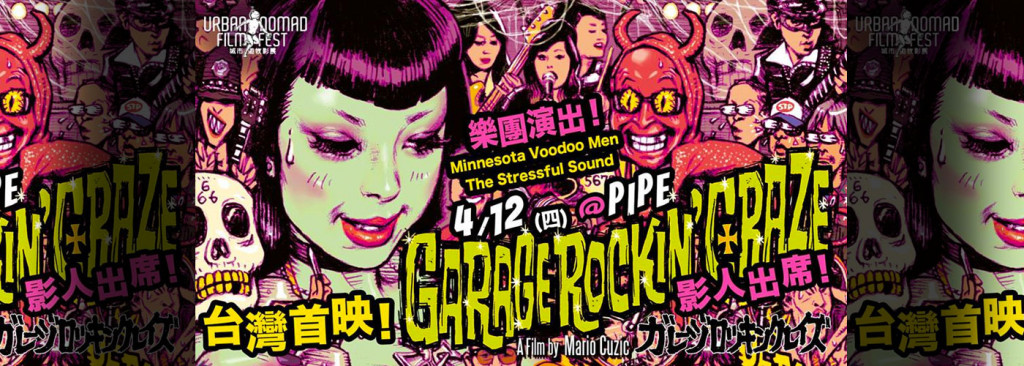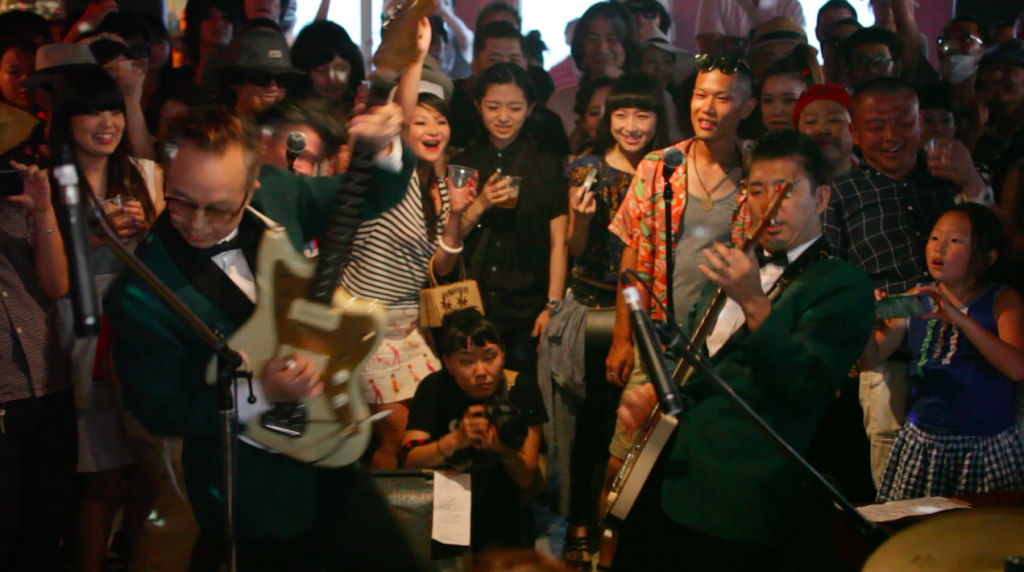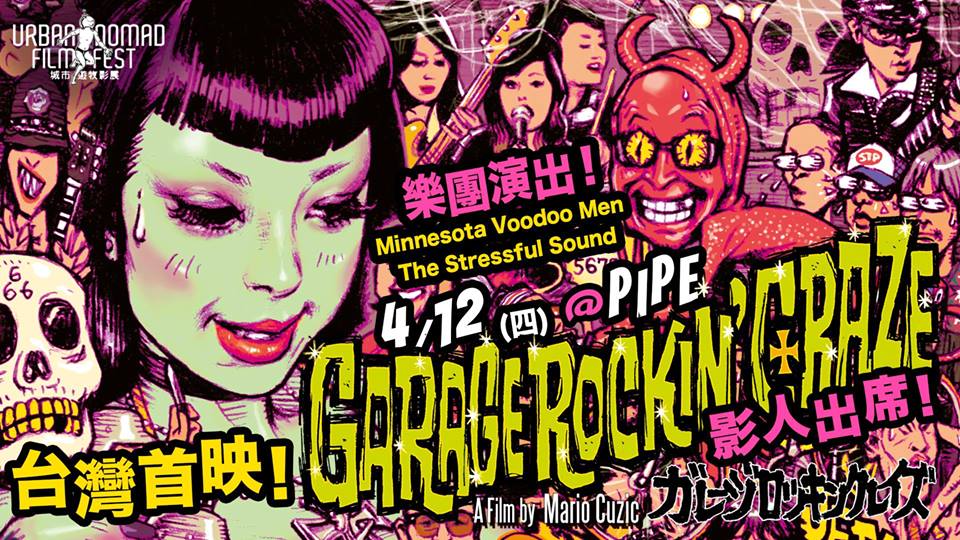1) Could you introduce yourself ? You have a bunch of different experiences, like assistant of kabuki actor, translator of erotica and TV news journalist. And why did you choose to stay in Japan ?
I studied history and East Asian languages and culture as an undergrad at the University of Kansas. After I graduated in 2010, I applied to do a Master’s degree in modern Japanese literature at Sophia University in Tokyo. Once that was finished, I figured that I could either move back to the States and try to get a job at a big Japanese company or continue to live in Japan; the latter seemed the more interesting of the two prospects, so I stuck around. Yes, my first job out of school was private assistant to Saotome Taichi, who is actually a taishuengeki (大衆演劇) performer, but that art form is a close cousin to kabuki. I enjoyed the opportunity to see what working in the entertainment industry was like, but came to realize that the position was not for me, quit, and took up freelance translating and interpreting. As a freelancer, I have indeed done erotica, but I have worked on projects for a number of different major corporations such as Apple, Coca Cola, Nintendo, etc., as well. In 2014 I was hired to work as an in-house translator for Fujifilm, where I worked until the mounting pressures of the film release basically got to the point where I needed to quit in order to fulfil them. Since then I have been working entirely freelance.
2)How did you start the project “GARAGE ROCKIN’ CRAZE “? In this film, what do you want to share with audiences? (Btw, congrats on winning Best Documentary at the Tampa Bay Underground Film Festival 2017). Are there any fun stories from the production of the film?
I did not start this project. The director, Mario Cuzic, who had been living in Japan since 1999, started shooting it around 2010 or 2011. He had moved over and was teaching English, but realized that if he didn’t try to acquire some sort of marketable skill, the life of an English teacher in Japan does not offer many advancement opportunities or really anything outside of a short detour on the way to a proper career, so he apparently chose to take up the camera. He was into the music shown in the film simply as a fan, and since he was looking for subjects to practice shooting and editing with, he figured he would shoot the bands that he saw at gigs on the weekends. Eventually he would make music videos for them, post them to the internet, and find out that the bands themselves saw the videos and this would lead to them becoming friends. Mario is a fan of documentaries, so he knew that he wanted to make this movie, but after a certain point he realized that he just didn’t have the Japanese language ability required to put together a feature documentary.
I had known Mario for a few years and would see him around, but shortly after the 2015 new year, after many times offering whatever help I could on his project since he would always gab about it at bars or at shows, he finally let me come over and take a look at some of the interviews he had taken. Up until that point, he had come up with a series of questions, had them translated into Japanese, then just kind of showed them to the bands and had them answer at length while he rolled the camera; the problem was that he didn’t really understand the answers. I initially came over to translate all of his interviews and he would make pizza and buy beer and we would sit there once a week, but one night as I was about to leave, the other person living in the share house where Mario lived came home and mentioned that he was moving out. Since it was closer to work, much bigger than my place at the time, and would allow me to help on the movie more than my once a week deal that we had going on, I said I would move in. After a while, since I was already there, Mario figured it would be easier if I just came up with a story and checked it with him as opposed to translating all of the footage he had, so we came to work closely for those last two years of production. I asked him to arrange a few more interviews with people that I felt should be in the film, but compared to his years and years of compiling footage for the movie, I mostly just helped him sift through what he had, work with him to put it into a cohesive feature, and work with the distributors to get the movie released in Japan.
3) Do you know the film “GET ACTION!!”? The movie is a story about TEENGENERATE. Did it serve as an inspiration for you to start shooting “GARAGE ROCKIN’ CRAZE”?
Mario had been shooting stuff for his movie long before GET ACTION!! was even announced, but that movie came out before I got involved with Mario’s project, so it certainly was an inspiration for me. I am a huge Teengenerate fan, and got to know the director Junya Kondo. But, once Mario’s movie progressed to the point where we knew that it would definitely get finished–we were both working full time jobs along with moonlighting as wedding priests, you see–he said that he wanted to take the movie back with him to his home in Canada and try to use it as a spring board to get a job working in the Canadian film industry. I told him that I knew a guy who could probably introduce us to some movie theatre that would let us screen it for a night where we could gather all our friends as kind of a farewell party for Mario, so I called Kondo-san, and it turned out that he not only directed GET ACTION!! but also worked distributing films in Japan. He showed interest and ended up really teaching us a lot about what it takes to get a movie onto the screen.

4) How do you see the development of garage rock in Japanese, and what’s the difference between Japan and other countries ? Also, what about it connects with you personally? What kind of vision do you have toward the future of garage rock ?
There are several bands that have cropped up since I started attending shows regularly, and of course as you can see from what is in the film that there is a healthy scene in place already, but to be honest, I do believe that the way music is experienced in the present day has led to diminished attendance. The core of people going to shows is strong, but you rarely get any fresh blood, but that may be just as well as there really is a great sense of camaraderie among those in the scene.
I think that you will see this in the film, but what separates Japanese garage punk from the rest of the world is their dedication and showmanship as well as being completely open to any and all sources of influence. The kind of energy that you find at these shows can’t be beat; the bands all look good, their passion for playing really comes across in their outfits, in their energy, in their high quality gear, all of that. And while there certainly are excellent bands outside of Japan, even if a live band comes over here to play, I often find myself disappointed at how they can struggle to compare with the bands that are already here. The last band I saw here from abroad that really gave the Japanese bands a run for their money, in my humble opinion, was Mesa Cosa from Australia.
As for the future, in my opinion the whole label of “garage rock” or “trash rock” or “garage punk,” all of those are kind of silly; I think that this music really just is the continuation of what Little Richard, Chuck Berry, Bo Diddley, Jerry Lee Lewis, all those guys started rather than a genre unto itself. It’s certainly got room to expand, but it has an excellent canon that is easy for people just getting into it to learn about, but at the same time there are always obscure singles being discovered and spun out there, meaning it never really gets old. The music strikes a primitive chord, hitting on the kind of beat that reverberates with all humans, so I don’t really think about the future of the genre so much as preserving the rich history that it’s maintained thus far.

5) Could you tell us why did you invite Rockin Jelly Bean to be the poster designer? From your point of view, what kind of person is Jelly Bean? Could you share any “behind of scenes” stories with us?
Mario really wanted Jelly to do the poster. When I told Kondo we wanted to get Jelly to do it, he was a little ticked off (and was probably just joking), seeing as how he did the GET ACTION!! poster too, but I think Mario made the right decision.
All I can say is that Rockin’ Jellybean has always been a stand up guy, very nice and polite and a great performer. Mario’s good friends with him too, but seeing as how Mario had been talking about making this movie for so long, and Jelly being a professional artist and all, when I said to him that Mario really wanted him to do the poster and that we’d give him a screener to watch, he seemed a little lukewarm. However, after he watched it, I got a call back right away, saying he had to do the poster. A couple months later he had a bunch of designs for us to choose from and we went with the first one he proposed. I’m sure I speak for Mario here, but I’m really glad that he did the poster as well because, when it comes down to it, he’s basically drawing all of his friends in one giant collage of sorts; no one else would have been able to situate everyone and illustrate them with as much personality as someone who knows them all really well, so I’m really glad it was RJB who did the poster.
6) Could you share the most impressive gig you’ve seen recently with us?
The gig I went to last night. A whole bunch of different DJs all playing whatever they want and two awesome acts: Solid 6 1/2s (Made up of 2 members of Mystery Meat, see #11 below) and Tucker, a one man music machine who creates funky pieces using your typical assortment of organ, guitar, bass, and drums, but also uses an oil can, his beard, a theremin, and fire to create an absolutely excellent live music experience. I think he’s even listed in Lonely Planet Tokyo, he’s fucking brilliant.
7) We would like to know what’s currently on your playlist on your phone (or Spotify, YouTube, etc). Could you share this with our readers?
To be completely honest, I am a much better thief of good music than I am blessed with an ability to find it digging on my own. That’s not to say I pirate music, just to say that a lot of what I listen to is at the recommendation of my wife and friends, who fortunately all have excellent taste.
Some bands that I have on heavy rotation are The Hexxers, Black Mambas, old Sun days Elvis stuff, Muddy Waters, Howlin’ Wolf, and Loney-era Flamin’ Groovies.
8) What kind of brand or any particular designer do you adore? If you need to choose “one piece” (clothes or accessories…etc) to represent garage rock, what would you recommend?
Teisco. Somethin’ about getting that awesome, boogey woogey sound out of a cheap guitar like Hound Dog Taylor did summarizes what the whole genre is about I think.

(《GARAGE ROCKIN’ CRAZE》stll)
9) If you were asked to make some recommendations to new comers who want to get more into garage rock, which bands and live houses are “must-see” and “must-go”?
If we’re talking about Japan, then for garage it would have to be Minnesota Voodoo Men, Stompin’ Riffraffs, and The Fadeaways. As long as one of them are on the bill, the whole gig will more likely than not be a lot of fun, especially because while those bands would probably fit closest to that “late ’50s/early ’60s rock and roll” mentality, they will more likely than no be playing with bands from other genres. Other great bands to check out here are Car Crash, Gorilla*, Souta and the Blitz Attack Boys, Rangsteen, Highlife, Young Parisian, the list goes on. Venues in Tokyo that generally offer solid gigs on a regular basis are Hatagaya Heavysick, Higashi-Koenji UFO Club, Koenji Green Apple, Koenji Penguin House, Shimokitazawa Basement Bar, Shimokitazawa Three. And if you find yourself in town before the weekend and want to find something to do, drop by either Heavysick or Fifi from Teengenerate’s bar Poor Cow in Shimokitazawa, the people there will be happy to point you toward something to check out since there really is at least 2 or 3 good gigs just about every weekend.
10) Use one sentence to describe garage rock.
Do it yourself.
11) Could you tell us the relationship between you and Urban Nomad, like, how did you meet each other at the first place? Moreover, The Minnesota Voodoo Men is having a show in Taiwan, could you tell our readers why they should see the show in person?
The organizer, Dave, was introduced to me through a mutual friend named Mark. Mark has been living in Tokyo for a while now and is someone I look up to as a musician and DJ. He and his buddy Noel put on a monthly DJ night called Mystery Meat and apparently they brought that event (or at least, themselves and their records) over to Taiwan to DJ a couple years back, apparently through Dave. Well, Dave was over here in Tokyo and I think he saw the poster while he was out drinking with Mark one night, Mark introduced me, and we got to work on trying to get the movie over there.
Why should you see Minnesota Voodoo Men in person? Their guitarist, Yusuke, has a penchant for climbing rafters and playing guitar while hanging by his knees. Otherwise, Minnesota are a band that look so cool and play such a wide variety of crunchy, badass rock and roll, that they just elicit the need to dance from their audience
*Interview from Keedan.com


 中文
中文





